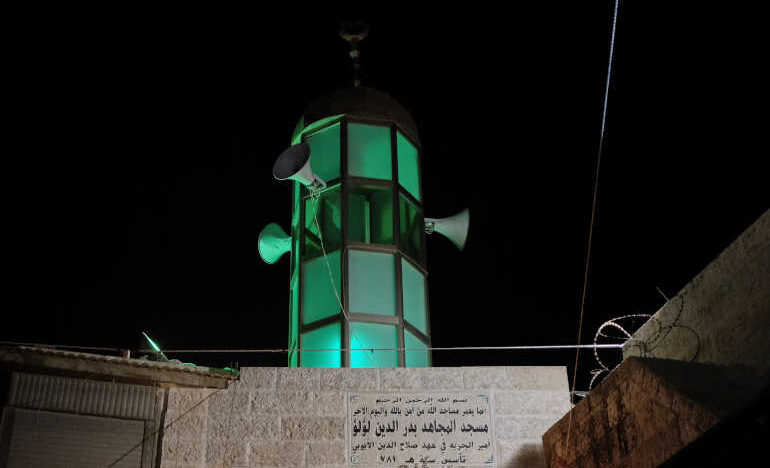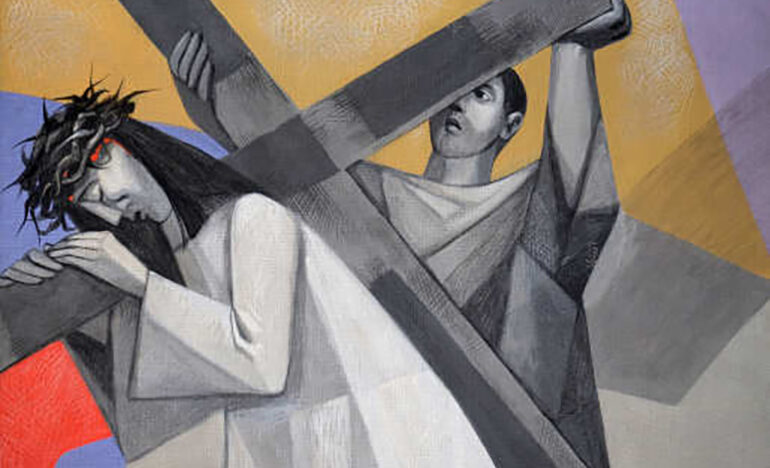The Indwelling Spirit of God: A Living Reality

By Kathy Keary
Part 3. The full series is here: The Contemplative Spirit of Islam.
Even though both the Old and New Testaments emphasize through repetition that the Spirit of God dwells in each of us, I am often surprised to find that some churchgoers do not accept this. The Lord came to the prophet Ezekiel and promised:
“I will give you a new heart, and a new spirit I will put within you. I will remove the heart of stone from your flesh and give you a heart of flesh. I will put my spirit within you so that you walk in my statutes, observe my ordinances, and keep them” (36:26-27).
In St Paul’s First Letter to the Corinthians, he questions the listener: “Do you not know that you are the temple of God, and that the Spirit of God dwells in you?” (3:16).
My role as a spiritual director is to help individuals access the Inner Wisdom that lies within them. This Inner Wisdom is the Indwelling Spirit of God – the Still Small Voice Within – the Divine Spark – the Whisper of the Soul. The God within us offers guidance, comfort, and boundless love and compassion.
Our communion with the Indwelling Spirit stands at the heart of contemplation. Resting in the embrace of the God who dwells within us is a profound source of the fruits of the Spirit: love, joy, peace, patience, kindness, generosity, faithfulness, gentleness, self-control (Galatians 5:22b-23a). Contemplative practices propel us to carry these treasures into our daily lives – to be light in our world.
In studying Islam, I have discovered that this topic is not only a Christian belief but is prevalent in Islamic texts as well. Imam Jamal Rahman in his book, The Fragrance of Faith: The Enlightened Heart of Islam, asserts:
Insides us resides resplendent Majesty, a sun more radiant than any sun we can imagine. But we have little idea of this. The Qur’an points out that God molded Adam and Eve from water and clay and out of Infinite Graciousness infused them with His Divine breath … The human being is blessed with Divine Spirit, is a bearer of the Trust, and representative of God on earth.
In Spiritual Gems of Islam, Rahman instructs that the Qur’an positions God both inside and outside a person. Through the inner work of dismantling our ego and opening our hearts, a pathway to connect with God is created within us. We connect with the Allah (God in Arabic) outside us by serving others and God’s creation.
Note: Never miss an article published on the Renewal Center website: Sign up to receive our newsletters.
Rahman tells a beautiful story of his friend who was transformed after learning that cancer would soon be taking his life. Even though he had long turned away from his Islamic faith, he heard in the depths of his being an Islamic call to prayer being sung. This gorgeous sound was inaudible to those who were with him. In that moment, something changed within him. He became aware of what he referred to as the “Beloved” in his heart. He continued to periodically hear the call to prayer with the ear of his heart. In those moments, he experienced an ineffable connection with the Beloved and discovered an unbounded love deep within so special that to mention it brought him to tears. The experience encouraged him to share this love with others.
Llewellyn Vaughan-Lee in his book, Sufism: The Transformation of the Heart, also sheds light on this belief:
Saint Augustine said, “Return within yourself, for in the inward man dwells Truth.” The mystic experiences that the Beloved dwells within the mystic’s heart, not as a concept but as a living reality. In the depths of the heart there is no separation between the lover and the Beloved. Here we are eternally united with God, and the mystical experience of union is a revelation of what is always present.
As we continue our study of the contemplative nature of Islam, I am inspired by the words of the interspiritual author and professor, Mirabai Starr, found in her book: God of Love: A Guide to the Heart of Judaism, Christianity, and Islam:
The interfaith movement has been characterized by the sincere effort on the part of religious believers from all the world’s major faith traditions to build tolerance, trust, and mutual understanding … It’s time to go deeper. It’s not enough to seek an intellectual orientation toward other traditions. We need to plunge into their mystic heart and let them transform us.
By exploring how others experience the Divine, our view of God expands. This opens us to the possibility of experiencing a fruitful transformation of the heart – a turning to God that translates into works of love and justice. May your communion with the Indwelling Spirit fill your soul with a sense of love, peace, and joy, and may you generously share these gifts with others.
NOTE: The Renewal Center staff will be leading a book discussion on Rahman’s book Spiritual Gems of Islam on Saturdays and Tuesdays in June.
Image Above: A Minaret near the Damascus Gate in the Old City neighborhood of Jerusalem with megaphones to call Islam worshipers to prayer. Photo 170302928 © Alessandro Vallainc | Dreamstime.com
References
Rahman, Jamal. Spiritual Gems of Islam: Insights and Practices from the Qur’an, Hadith, Rumi and Muslin Teaching Stories to Enlighten the Heart and Mind. USA: Skylight Path Publishing, 2013.
Rahman, Jamal. The Fragrance of Faith: The Enlightened Heart of Islam. Bath, England: The Book Foundation, 2004.
Starr, Mirabai. God of Love: A Guide to the Heart of Judaism, Christianity, and Islam. Rhinebeck, NY: Monkfish Publishing Company, 2012.
Vaughan-Lee, Llewellyn. Sufism: The Transformation of the Heart. Point Reyes, California: The Golden Sufi Center, 1995.
We’d Like to Hear From You!
We’d like to know what you think about this article. Send us a comment using the form below. Do you have a suggestion? Is there something you want to learn more about? Send us a note.
Related

What’s the Problem?
By Fr. Garry Richmeier, C.PP.S.
You can’t fix a relationship or a behavior like a mechanic fixes a car or a surgeon “fixes” a patient. Behaviors and relationships don’t have parts that can be fixed or replaced when the break or malfunction.

Lent Video Five – Meditation: “Only a Shadow of You Love”
Next Sunday is Palm Sunday and next week is Holy Week. In anticipation of those solemn commemorations, today, Fr. Ron will help us pray and meditate on the Stations of the Cross.
Categories
Assembling God's Puzzle Coffee with Padre Cooking & Spirituality Encounters of the 4th Kind Family Matters Reflections on the Eucharsitic Prayers Spiritual Resources Taize Prayers The Contemplative Life Traveling with Pilgrims of Hope Uncategorized Videos Week of Prayer for Uhristian Unity When you need a little help
